Search Results
Showing results 1861 to 1880 of 2059
The Same Names
Source Institutions
In this math activity, learners make and explore patterns using the letters in their names, a grid, and some colors.

Can Car
Source Institutions
In this physics activity, challenge learners to make a race-car out of a coffee can and rubber band. Demonstrate motion, forces, kinetic and potential energy and friction.
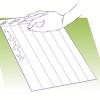
Sea Turtle Populations
Source Institutions
In this activity (on page 2 of PDF under GPS: Sea Turtles Activity), learners will model how a sea turtle population changes over time, from eggs to adults, using puffed rice.

Right Ear/Left Ear
Source Institutions
In this activity (4th on the page), learners conduct a series of tests to find out which of their ears is more dominant.
Pattern Families
Source Institutions
In this math activity, learners sort patterns into similar "families" or groups that have the same pattern, but different symbols.
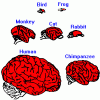
Jump to It!
Source Institutions
This is a quick and simple demonstration about reflexes (second activity on the page).
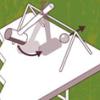
Extreme Kicking Machine
Source Institutions
In this design challenge activity follow up to "Kicking Machine", learners add a hands-free feature to their Kicking Machine.
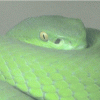
Can You "See" Thermal Radiation?
Source Institutions
Use this hands-on activity to demonstrate infrared and thermal radiation.
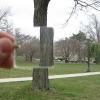
Gelatin Prism
Source Institutions
In this activity, learners make prisms from gelatin. Learners then shine light through the prisms and discover what happens. This activity introduces learners to the idea of refraction.
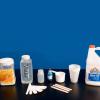
Slime
Source Institutions
Learners make slime from white school glue and Borax detergent. The long chain molecules of the white glue become cross-linked by the Borax into a big network.
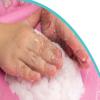
Homemade Snow
Source Institutions
In this sensory activity, learners enjoy the fun of a snow day any season of the year.
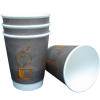
What Can You Make of It?
Source Institutions
In this activity (located on page 2 of PDF), learners explore alternative uses of a simple paper cup, dubbed a "mystery item." Learners act as detectives and explore the properties and functions of th
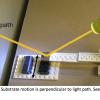
Exploring the Nanoworld with LEGO Bricks: Probing the Structure of Materials at the Nanoscale
Source Institutions
In this activity (pages 17-31), learners are introduced to techniques that are used to determine the structures of solid materials.

Crunch Time
Source Institutions
In this quick and easy activity and/or demonstration, learners use two empty 2-liter bottles and hot tap water to illustrate the effect of heat on pressure.
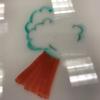
Floating Dry Erase Creations
Source Institutions
In this activity, learners will create a drawing with dry erase markers and watch it come to life. Learners will explore chemistry, art and storytelling through this activity.
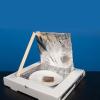
Cook Food Using the Sun
Source Institutions
Learners build a solar oven from a cardboard pizza box, aluminum foil and plastic. Learners can use their oven to cook S'mores or other food in the sun.
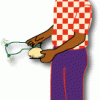
Fruity Electricity
Source Institutions
In this activity, Frankenstein's lab is running out of electricity! Learners use fruit to help Igor find a temporary source of energy to turn on a light.
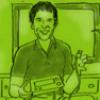
Electric Highway
Source Institutions
In this design challenge activity, learners design and build a circuit: an "electric highway" that connects a battery and buzzer at least three feet apart using four types of materials.
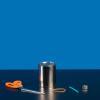
Make a Comeback Can
Source Institutions
Learners build a can that automatically returns after being rolled away. The can has a rubber band inside that stores energy as the can rolls one direction.
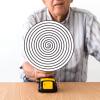
Depth Spinner
Source Institutions
Experience a spinning spiral...you won't be hypnotized, but you'll see what happens when you look away. It's like getting off a merry-go-round and everything keeps moving.
